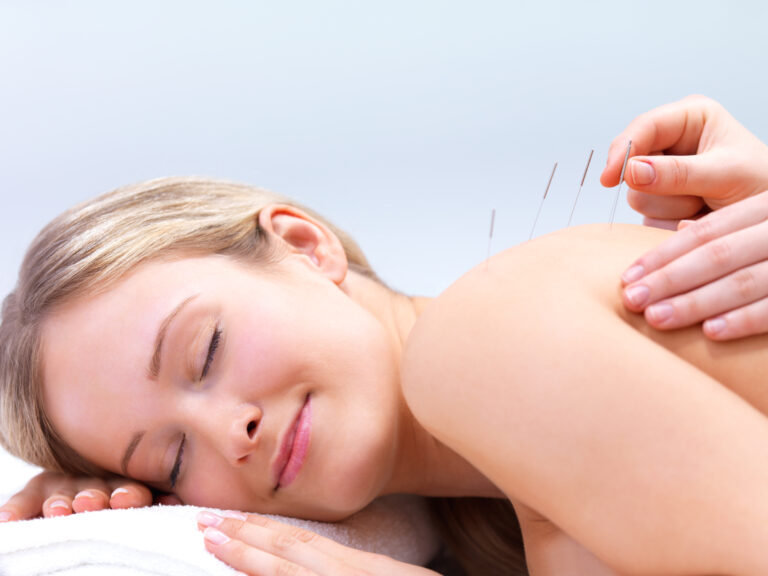Acupuncture. Is it a new, emerging field of medicine or an ancient one? Acupuncture was first recorded about 3,000 years ago. However, evidence suggests and museums contain rock art petroglyphs and other evidence suggesting acupuncture to be as old as 10,000 years. How could something so primitive be so effective today?
I recently read something that said Truth stands alone. Truth is truth and needs no defending. The truth is, acupuncture works. It’s worked for thousands of years and that’s why it is still here today. Anything that doesn’t work goes away – acupuncture has withstood the test of time. However, our curiosity about WHY or HOW acupuncture works prompts us to do research on it. The wonderful thing about researching acupuncture is that the results consistently come back saying that acupuncture works! The more research that is done, the more mainstream medicine accepts it (if they read it of course!)
Acupuncture was first introduced into the United States in 1972 after President Richard Nixon traveled to China. One accompanying New York Times Reporter tried acupuncture for post-appendectomy pain and they were impressed with the results. Although licensing began in the late 1970’s, it wasn’t until 1997 that it was “formally recognized as safe and effective for a wide range of illnesses” until the National Institutes for Health came out with that conclusion and announced it to the general public.
In the beginning it was theorized that acupuncture worked by placebo. However, that was quickly discarded as it was realized that animals did exceptionally well with acupuncture. It is known that animals are not subject to a placebo effect. Research has reinforced this in double-blind clinical trials on humans given real acupuncture vs. “sham acupuncture”.
No article is complete without addressing the greatest fear: needles. Unlike hypodermic needles (the type used for giving injections) acupuncture needles are thin, soft, hair-like with a round-circumferenced tip. Whereas hypodermic needles have a cutting edge in order to inject a fluid, acupuncture needles don’t and they easily slip between the fibers of the skin, not actually cutting it. Therefore, you don’t have the pain of a “shot”. The fear is far greater than the discomfort (which is described as feeling like a mosquito bite). The needles do not inject anything and are placed into “acu-points” – specific points with specific functions in the body.
The effect of Acupuncture can best be described as restoring function. Getting the body to do what it already knows how to do – giving the body a nudge in the right direction. Acupuncture works on a great number of health conditions, but how it works is not always clear. We do know that it works in a variety of ways on a variety of systems, but the mechanism isn’t always clear. For instance, we know that when we place a needle in an acu-point called “Hegu” that it affects the brain and causes a release of hormones that stop pain and inflammation. This has been demonstrated over and over again in research labs, with consistency. However, the point is on the hand – so how does the message get to the brain? After acupuncture treatments, triglyceride levels in the blood are lowered immediately – how does a couple of basic points do that? We still have a lot to learn.
We know that acupuncture improves circulation, regulates blood sugar levels, reduces cholesterol and triglyceride levels, and affects white blood cell activity – an important factor in immunity, balances body temperature, and stops pain and inflammation anywhere in the body. We also know that it affects the neurological, digestive, hormonal, electromagnetic, lymphatic, urogenital, cardiovascular and other systems in the body.
Experiencing acupuncture is a treat. The acupuncturist will sit with you and discuss your health condition. Not just your primary complaint, but everything going on. They spend time with you and truly listen. They compile what’s referred to as a “pattern of disharmony”. A view of the entire body and every symptom as a whole. They then treat the body – not the symptom directly (unless it is a structural injury). That’s the beauty of acupuncture. Anyone can place a needle in a point of pain and get rid of it. A good acupuncturist goes further. S/he will address the underlying reason why the condition exists, and not just symptom-chase. So expect to spend some time there. Then, after the needles are placed, you will rest, with lights out and soft music playing in the background. When you are done, you will feel refreshed (or relaxed), relieved, and anxious for your next treatment. The results are marvelous, and speak for themselves!
If you are not succeeding in addressing your health condition, if you are simply managing instead of eliminating your symptoms, if you are tired of chasing symptoms, are tired of the approach that is being used, or tired of the side-effects of your current treatments, try acupuncture. You’ll be glad you did!
© 2008 Holly A. Carling, O.M.D., L.Ac., Ph.D.







